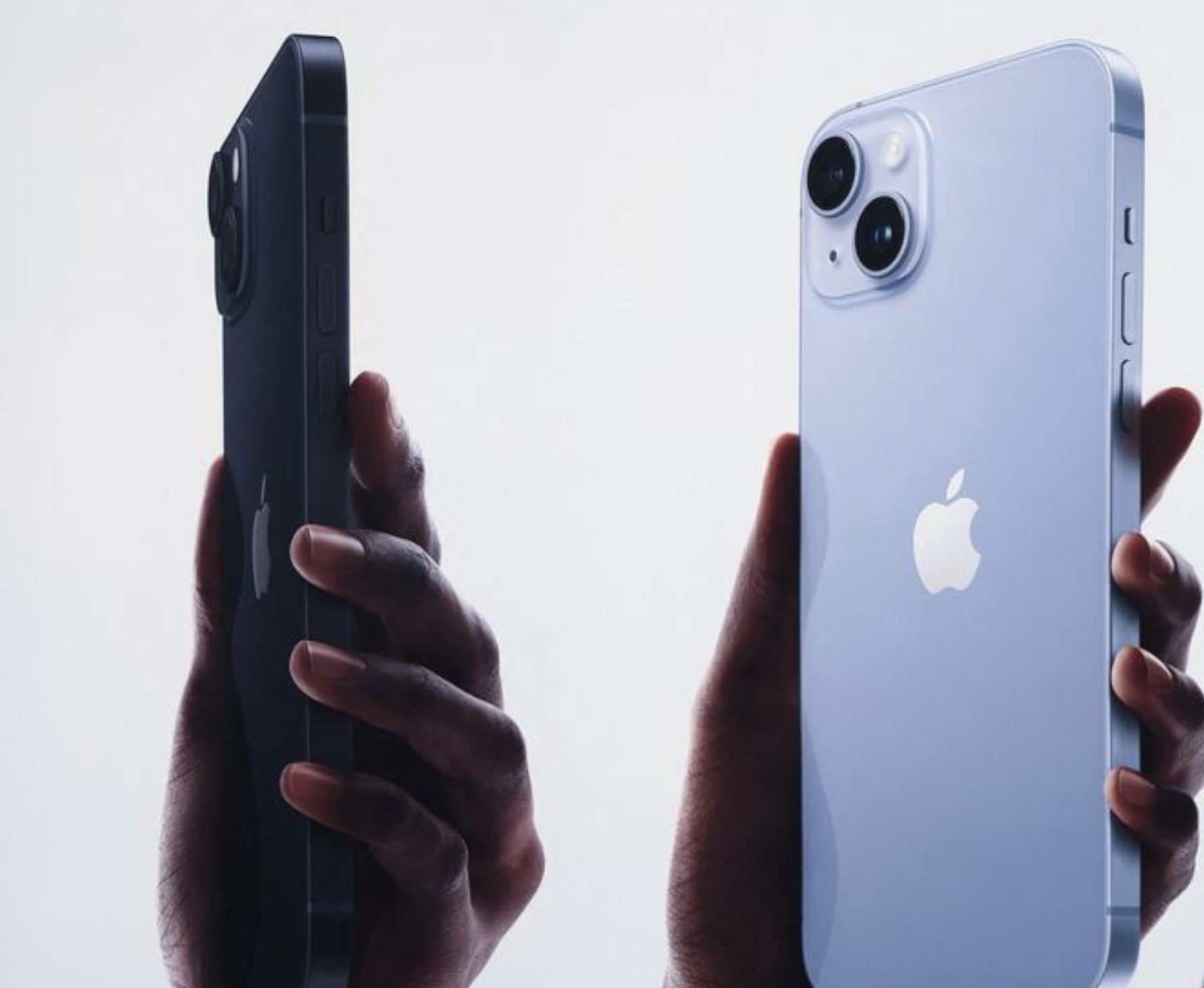- Lifestyle & Sports
- 18 Apr 23
Are Plans Announced by Apple to Use 100% Recycled Cobalt Worth a Damn?

That is a very good question. And sadly, the answer is: in truth, there is a far bigger issue to be addressed. Here, Gerry McGovern underlines the reality that it is the sheer volume of phones being manufactured that is the real environmental disaster area...
Tech giants Apple, last week, announced what the corporation describes as a major acceleration of its work to expand recycled materials across its products, including a new 2025 target to use 100 percent recycled cobalt in all Apple-designed batteries.
Additionally, by 2025, the statement – issued from Apple’s global HQ in Cupertino, California – promised, "magnets in Apple devices will use entirely recycled rare earth elements, and all Apple-designed printed circuit boards will use 100 percent recycled tin soldering and 100 percent recycled gold plating.”
The background to these heavily trumpeted targets was explained as follows.
"In 2022, the company significantly expanded its use of key recycled metals, and now sources over two-thirds of all aluminium, nearly three-quarters of all rare earths, and more than 95 percent of all tungsten in Apple products from 100 percent recycled material. This rapid progress brings Apple closer to its aim to one day make all products with only recycled and renewable materials, and advances the company’s 2030 goal to make every product carbon neutral.”
And there was specific reference to cobalt in the statement.
"Apple has significantly expanded the use of 100 percent certified recycled cobalt over the past three years, making it possible to include in all Apple-designed batteries by 2025.”
 Gerry McGovern.
Gerry McGovern.WHOLLY UNSUSTAINABLE
That all sounds like good news. But it is important for us all to maintain a bit of perspective.
The reality is that there has been an almost 400% increase in cobalt mining since 1970. The vast majority of this cobalt comes from the Copperbelt of Democratic Republic of Congo and Zambia. In the region of 50% of world production of cobalt emanates from the DRC alone, where the conditions under which workers have to operate are beyond appalling. And, equally, where the impact on the local environment is notoriously destructive.
Mining, as is argued in a major piece on Ireland’s mining policy, in the current issue of Hot Press, is a fundamentally dirty business. It inflicts significant damage on the environment. The only question is: how bad can it get? In relation to the production of cobalt, the answer is: very bad indeed.
So what will Apple’s new targets do to change that reality, considering that demand for cobalt is accelerating madly in other areas that are being touted as part of the green agenda – most obviously the introduction of electric cars?
It is estimated that all the cobalt available on land today, anywhere in the world, is less than would be required to help even just the UK to achieve its electric vehicle targets over the next ten years, let alone servicing the demand from the rest of the world. In other words, the demand for the cobalt that’s required for the so-called “green” transition, is going to be wholly unsustainable.
This stark realisation is driving an increasingly aggressive agenda for deep sea mining, at who knows what environmental cost? As a result, you might reasonably conclude, the transition to renewable energy is itself going to be responsible for the renewed devastation of ecosystems on both land and sea.
As John Lennon said, “Strange days indeed. Most peculiar, mama.” But this is where we are, in the spring of 2023.
 Image: Junior Kannah / AFP.
Image: Junior Kannah / AFP.MONOPOLISTIOC PRACTICES
So, am I excited to hear Apple’s announcement? In fairness, it's a positive that Apple intends to use 100% recycled cobalt. They are, you might say, at least trying.
But it is a small positive, against a backdrop where – in a wider sense – Apple are up to their necks in a game that wreaks social and environmental havoc. Or that’s certainly the way I see it.
The Apple corporation is still part of a system that is geared towards built-in obsolescence – and that is the single biggest problem that we are facing on the planet right now.
They accumulate the vast fortunes that have made them among the Top 3 richest companies in the world, by changing models every season, by making a phone look different, by adding features that can’t be hooked onto to a phone that was sold less than 24 months previously. They profit from the demand they create for new gizmos, even while the older ones are still fully functional. Which makes Apple – and other companies like them – part of the problem rather than authors of a viable solution.
Recycling is positive, but really it should be a last resort. It is 100 times better for the environment to keep products longer in use than to recycle them.
In any event, right now, recycling of smartphones is at an abysmal level. Only 15% of smartphones are recycled – and of those that are, only about 30% of reusable materials can be retrieved from the little boxes, because so many materials are packed into such a small space.
 Apple iPhone 14.
Apple iPhone 14.So, the Circular Economy for smartphones is currently running at about 5%. How absurd and shameful is that?
So, I’m afraid that my response to Apple’s announcement is shot through with a deep sense of disquiet.
The inescapable truth, in my view, is that Apple would be doing a lot more for the environment if it embraced material simplicity as a design philosophy and committed to 100% recyclability of all the materials it uses.
Even more important, I believe that Apple must genuinely support the Right To Repair movement, something that up until now it seems to have done everything in its power to thwart. This is something that increasingly affects all areas of tech-based consumer products. Cars, for example, are deliberately designed to make it difficult for anyone other than a designated “main dealer” for the car brand to service, repair, or even change a faulty bulb.
That the regulators in charge of consumer protection have failed to address what are self-evidently monopolistic practices is scandalous. But there is little doubt either that Apple Inc understands what is involved in being “sustainable."
Genuinely aiming for that holy grail would mean moving away from the Planned Obsolescence model that it – and other corporations like it – have perfected. It would mean designing and supporting phones that last at least 10 years. It would require a whole new mind-set.
Then and only then would Apple be genuinely entitled to claim it is a sustainable company.
Everything else, I’m afraid, is greenwashing.
RELATED

- Lifestyle & Sports
- 31 Jul 23
Tech Preview: Apple MacBook Air 15-inch

- Lifestyle & Sports
- 08 Jun 23
Tech Review: Apple Watch Series 8

- Lifestyle & Sports
- 03 May 23
Tech Preview: Apple AirPods Pro (2nd Generation)
RELATED

- Sex & Drugs
- 18 Apr 23
Trans and Intersex Pride Dublin reveals plans for 2023 Pride march

- Lifestyle & Sports
- 12 May 22
The iPod is discontinued, Apple announces

- Lifestyle & Sports
- 09 Feb 22
Hot for 2022 Tech Countdown: The Freestyle Samsung, PlayStation VR2 Sony & More

- Lifestyle & Sports
- 13 Dec 21
Gift Guide: Harvey Norman, Boots & GameStop at Blanchardstown Centre

- Lifestyle & Sports
- 20 Oct 21


